Navigating the IT Job Market as a Recent Graduate

Introduction
In recent years, the IT job market has experienced explosive growth, driven by rapid technological advancements and an increasing reliance on digital solutions across all sectors. As businesses prioritize innovation, the demand for skilled IT professionals has surged, creating a dynamic landscape filled with opportunities. However, this burgeoning market also comes with its complexities, presenting unique challenges for recent graduates seeking to carve out their place.
For newcomers to the field, strategic navigation of the IT job market is essential. Graduates often find themselves overwhelmed by the sheer volume of options and varying requirements across roles. Understanding how to effectively position oneself, build relevant skills, and network within the industry can significantly enhance their chances of securing a desirable position. In an environment where technical skills are constantly evolving, having a strategic approach can make all the difference between landing a dream job or facing prolonged uncertainty.
This article aims to equip recent graduates with the insights and tools they need to successfully navigate the IT job market. By exploring key strategies, such as skill development, networking, and leveraging internships, this guide will serve as a roadmap for those eager to launch their careers in the tech industry. Whether you’re a software developer, data analyst, or cybersecurity specialist, understanding how to approach this landscape will empower you to make informed decisions and increase your competitiveness in a vibrant job market.
Understanding the IT Job Landscape
A. Overview of Current Trends in the IT Sector
The IT sector is continually evolving, driven by advancements in technology and changing business needs. Key trends include the rise of artificial intelligence, machine learning, and cloud computing, which have transformed how organizations operate. Additionally, there is an increasing emphasis on remote work and digital collaboration tools, expanding opportunities for tech professionals beyond traditional office environments. Staying abreast of these trends is crucial for recent graduates, as it enables them to align their skills with market demands.
B. Types of Roles Available for Recent Graduates
Recent graduates have a variety of roles to consider within the IT field, each offering unique challenges and opportunities:
Software Development
Software development remains a cornerstone of the IT landscape, with a high demand for skilled programmers and engineers. Graduates can find opportunities in web development, mobile application development, and software engineering, often requiring proficiency in languages such as Python, Java, or JavaScript.
Cybersecurity
As cyber threats become increasingly sophisticated, the need for cybersecurity professionals has skyrocketed. Roles in this area include security analysts, penetration testers, and compliance officers. Graduates with a background in network security, risk management, or ethical hacking will find themselves in high demand.
Data Analysis
Data analysis has emerged as a critical function for organizations looking to leverage insights from their data. Graduates can pursue roles as data analysts, business intelligence analysts, or data scientists, where they will utilize statistical tools and programming languages like R or SQL to extract valuable information from datasets.
IT Support
IT support roles provide essential assistance to organizations, ensuring that technology systems run smoothly. Graduates can start in positions such as help desk technicians or system administrators, where they will troubleshoot issues and support users in utilizing technology effectively.
C. Key Industries Hiring IT Professionals
A wide range of industries are actively seeking IT talent. The technology sector itself is a natural fit, but opportunities also abound in finance, healthcare, retail, and government. Each industry presents unique challenges and requires specific technical skills, making it vital for graduates to consider their interests and career goals when exploring potential employers.
Building Relevant Skills
A. Essential Technical Skills to Focus On
In the competitive IT job market, possessing the right technical skills is paramount. Recent graduates should prioritize mastering the following:
Programming Languages (e.g., Python, Java)
Proficiency in programming languages is fundamental for many IT roles. Python, known for its versatility and ease of use, is popular in web development, data analysis, and automation. Java, on the other hand, remains a staple in enterprise applications and Android development. Familiarity with these languages can significantly enhance job prospects.
Cloud Computing Platforms (e.g., AWS, Azure)
With the shift towards cloud-based solutions, understanding cloud computing platforms is crucial. Amazon Web Services (AWS) and Microsoft Azure are leaders in this space, offering a range of services that businesses are increasingly adopting. Knowledge of cloud architecture and services can set graduates apart from their peers.
Data Analysis Tools (e.g., SQL, R)
Data-driven decision-making is a priority for organizations, making data analysis skills highly sought after. SQL is essential for managing and querying databases, while R is widely used for statistical analysis and data visualization. Mastering these tools can provide a strong foundation for roles in data science and analytics.
B. Importance of Soft Skills
While technical skills are crucial, soft skills play an equally important role in career success. Employers value candidates who can effectively communicate, collaborate, and solve problems.
Communication
Clear communication is essential in IT, where complex concepts must be conveyed to diverse audiences. Being able to articulate technical information in an understandable way can enhance teamwork and project outcomes.
Problem-Solving
IT professionals often encounter challenges that require innovative solutions. Strong problem-solving skills enable graduates to troubleshoot issues efficiently and think critically about technology applications.
Teamwork
Many IT projects are collaborative efforts, requiring input from various stakeholders. The ability to work well in teams fosters a positive work environment and ensures that projects are completed successfully and on time.
C. Online Resources for Skill Development
Recent graduates have access to a wealth of online resources for skill enhancement. Here are some popular options:
Courses (e.g., Coursera, Udemy)
Online learning platforms like Coursera and Udemy offer a vast array of courses covering programming, cloud computing, data analysis, and more. These platforms provide flexibility, allowing graduates to learn at their own pace and choose topics that align with their career goals.
Bootcamps and Workshops
For those seeking intensive, hands-on training, coding bootcamps and workshops can be invaluable. These programs typically focus on practical skills and can often lead to job placements, helping graduates transition smoothly into the workforce.
Gaining Practical Experience
A. Importance of Internships and Co-ops
Internships and cooperative education programs (co-ops) are invaluable for recent graduates seeking to gain practical experience in the IT field. These opportunities provide a chance to apply theoretical knowledge in real-world settings, enhancing technical skills and industry understanding. Additionally, internships often serve as stepping stones to full-time employment, allowing graduates to network with professionals and potentially secure job offers before graduation.
B. Participating in Hackathons and Coding Competitions
Hackathons and coding competitions are excellent avenues for recent graduates to showcase their skills and creativity. These events encourage participants to develop innovative solutions within a limited timeframe, fostering collaboration and problem-solving under pressure. Engaging in such activities not only enhances coding proficiency but also provides networking opportunities with industry peers and potential employers.
C. Contributing to Open-Source Projects
Contributing to open-source projects is a practical way for graduates to demonstrate their coding abilities and commitment to collaborative development. By participating in these projects, individuals can build their resumes while gaining experience with version control systems, coding standards, and community-driven development. Additionally, open-source contributions showcase initiative and a passion for technology, qualities that employers value.
D. Building a Portfolio of Projects
A well-curated portfolio is a powerful tool for recent graduates to present their skills and creativity to potential employers. By showcasing personal or collaborative projects—whether it's a web application, mobile app, or data analysis report—graduates can demonstrate their technical capabilities and problem-solving skills. A strong portfolio not only highlights practical experience but also reflects an individual’s passion for technology and commitment to continuous learning.
Crafting a Strong Resume and Cover Letter
A. Key Elements to Include
When crafting a resume and cover letter, recent graduates should focus on including several key elements that highlight their qualifications and experiences:
Relevant Coursework and Projects
Including relevant coursework can demonstrate a solid foundation in essential topics. Additionally, showcasing specific projects allows graduates to illustrate practical applications of their skills. Highlighting these experiences not only shows academic knowledge but also indicates readiness to tackle real-world challenges.
Internships and Volunteer Work
Internships are critical for gaining practical experience, and they should be prominently featured on a resume. Similarly, volunteer work, especially in tech-related roles, can provide valuable insights into teamwork, leadership, and community involvement. These experiences reflect a proactive attitude and a commitment to personal and professional growth.
B. Tips for Tailoring Applications to Specific Roles
To stand out in a competitive job market, it’s essential to tailor each application to the specific role. This involves carefully reading the job description and aligning skills and experiences with the employer’s needs. Use relevant keywords from the job posting in both the resume and cover letter to demonstrate a strong fit. Additionally, consider mentioning specific projects or experiences that directly relate to the job responsibilities, making it clear why you are a strong candidate for the position.
C. Importance of Showcasing Technical and Soft Skills
When applying for IT positions, it’s crucial to showcase both technical and soft skills. Technical skills—such as programming languages, tools, and methodologies—should be clearly listed and contextualized within your experiences. However, soft skills like communication, problem-solving, and teamwork are equally important, as they often determine how effectively an individual can contribute to a team and adapt to the workplace environment. Highlighting a balance of both skill sets in applications can significantly enhance a graduate's appeal to potential employers.

Networking and Building Connections
A. Utilizing LinkedIn Effectively
LinkedIn is a powerful tool for recent graduates to connect with industry professionals and showcase their skills. To utilize it effectively, graduates should create a comprehensive profile that includes a professional photo, a strong headline, and a detailed summary highlighting their experiences and aspirations. Engaging with content, such as sharing articles or commenting on posts, can also help in building visibility. Additionally, connecting with classmates, professors, and industry professionals can expand one’s network significantly.
B. Joining IT-Related Groups and Associations
Joining IT-related groups and professional associations provides valuable networking opportunities and access to industry resources. Many organizations offer memberships that grant access to webinars, workshops, and exclusive job postings. Participating in these groups allows graduates to stay informed about industry trends, engage with peers, and establish connections with experienced professionals who can offer guidance and mentorship.
C. Attending Industry Events and Meetups
Industry events, conferences, and local meetups are excellent venues for networking and learning. Attending these events allows graduates to meet industry leaders, engage in discussions about current trends, and participate in workshops that enhance their skills. Being proactive in these settings—such as introducing oneself, asking questions, and exchanging contact information—can lead to meaningful connections that may result in job opportunities or mentorship.
D. Informational Interviews: How to Approach and What to Ask
Informational interviews are a valuable way to gain insights into specific roles and organizations. To approach someone for an informational interview, recent graduates should start by identifying professionals in their desired field and reaching out with a polite, concise message expressing interest in learning from their experiences. When conducting the interview, it’s important to ask open-ended questions about their career path, challenges they’ve faced, and advice they would give to someone entering the industry. This not only demonstrates curiosity but also helps build a rapport that could be beneficial for future opportunities.
Preparing for Interviews
A. Common Technical Interview Formats
Technical interviews often employ various formats to assess a candidate’s problem-solving abilities and coding skills. Common formats include:
- Coding Tests: These are typically online assessments where candidates solve algorithmic problems within a specified timeframe. Familiarity with platforms like HackerRank or LeetCode can be beneficial in preparing for these tests.
- Whiteboard Challenges: In this format, candidates are asked to solve problems in real-time, often on a whiteboard, while explaining their thought process. This helps interviewers evaluate not only the solution but also the candidate’s communication skills and approach to problem-solving.
B. Behavioral Interview Preparation
Behavioral interviews focus on a candidate’s past experiences to predict future behavior in similar situations. Preparing for these interviews involves reflecting on previous experiences and using the STAR method (Situation, Task, Action, Result) to structure responses. Candidates should anticipate questions about teamwork, conflict resolution, and adaptability, and prepare specific examples that highlight their soft skills and accomplishments.
C. Researching Companies and Their Cultures
Understanding a company's mission, values, and culture is crucial for effective interview preparation. Candidates should research the organization’s recent projects, news, and employee reviews on platforms like Glassdoor or LinkedIn. This knowledge allows candidates to tailor their responses and ask insightful questions during the interview, demonstrating genuine interest and alignment with the company’s values. Additionally, familiarity with the company's culture can help candidates assess if it’s the right fit for them.
Staying Informed and Adaptable
A. Importance of Keeping Up with Industry Trends
In the fast-paced world of IT, staying informed about industry trends is crucial for career success. Technological advancements can rapidly change the landscape, making it essential for professionals to adapt. Regularly following reputable tech news sources, blogs, and podcasts can help recent graduates remain aware of emerging technologies, best practices, and market demands. This knowledge not only enhances their skill sets but also positions them as informed candidates during interviews and discussions.
B. Continuing Education and Certifications
Continuing education is vital for IT professionals aiming to remain competitive. Pursuing certifications in specific technologies or methodologies—such as AWS Certified Solutions Architect, Certified Information Systems Security Professional (CISSP), or Certified Data Professional (CDP)—can enhance a graduate's qualifications and credibility. Many online platforms offer courses and training programs that allow individuals to learn at their own pace, making it easier to integrate learning into their busy schedules.
C. Being Open to Various Roles and Industries
Flexibility in job roles and industries can open numerous doors for recent graduates. While it’s important to have specific career goals, being open to diverse opportunities can lead to unexpected career paths and valuable experiences. Many IT skills are transferable across different sectors—such as finance, healthcare, or education—allowing graduates to explore various industries that align with their interests. This adaptability not only enriches their skill set but also increases their employability in an ever-changing job market.
Conclusion
In summary, recent graduates can navigate the IT job market effectively by implementing several key strategies. Understanding the current landscape, building relevant technical and soft skills, gaining practical experience through internships and projects, and crafting strong resumes and cover letters are essential steps in launching a successful career. Networking through platforms like LinkedIn and engaging in industry events further enhance opportunities for professional growth.
As graduates embark on their journey, it’s important to remain persistent and adaptable. The tech industry is dynamic, and the ability to pivot and embrace new challenges will be a significant asset. By continuously learning and being open to diverse roles, individuals can carve out fulfilling paths that align with their passions and strengths.
Ultimately, a career in IT is not just about technical skills; it’s also about creativity, problem-solving, and making an impact. The rewards of this field—ranging from innovation to the opportunity to shape the future—make it an exciting and worthwhile pursuit. Embrace the journey, and the possibilities are limitless!
Related Article Top 10 Programming Languages of the Future 2025 and Beyond Best Laptop for Data Science and Machine Learning Navigating the IT Job Market as a Recent Graduate Top 10 Certifications for Advancing Your Career in Data Science The Insider's Guide to Cracking MAANG Interviews How to Craft a Perfect Cover Letter for IT Jobs Programming Jobs Without a Degree: How to Build a Career in Tech Balancing Act: How to Job Search Effectively While Working Full-Time Open Source Contributions: How to Get Started Leadership Styles: How Different Approaches Impact Team Dynamics and Success From Any Field to Data Science: Your Ultimate Career Switch Blueprint How to Get a Data Science Job as a Fresher Personal Branding in the Digital Age: Building a Compelling Online Presence for Job Search Success How to Build a Strong GitHub Portfolio for IT Jobs The Future of Remote Work: How Technology Is Redefining the Workplace The Future of Artificial Intelligence in Programming How to Prepare for a Behavioral Interview?: Strategies and Examples Emerging IT Roles for 2024: What Skills Are in Demand
